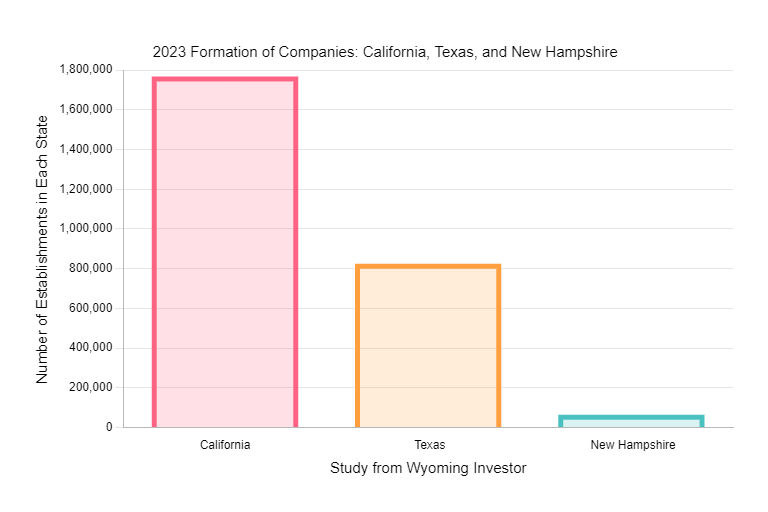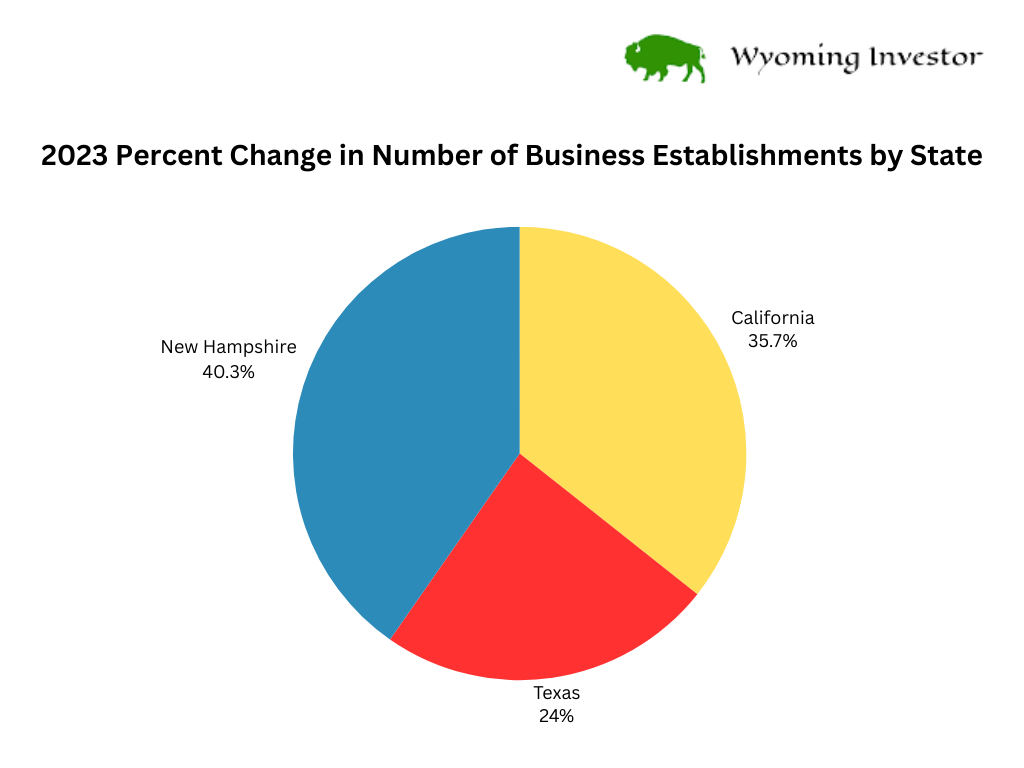Investors are always on the lookout for the next promising destination to deploy their capital, seeking growth and profitability. As the economic landscape evolves, various states in the United States present compelling opportunities for investment. One state, in particular, stands out for its potential across multiple sectors – New Hampshire. In this article, we will explore the factors that make New Hampshire an attractive investment destination and why it might be the next hotspot for savvy investors.
Economic Overview:
New Hampshire has experienced robust economic growth in recent years, outpacing national averages in key economic indicators. The state’s diverse economy, characterized by a mix of industries such as healthcare, manufacturing, education, and technology, provides a solid foundation for sustained development. The business-friendly environment, coupled with strategic geographic positioning, has attracted a diverse range of companies, from startups to established enterprises.
Infrastructure and Connectivity:
Investors often prioritize regions with well-developed infrastructure, and New Hampshire excels in this regard. The state has made significant investments in transportation, technology, and energy infrastructure, fostering seamless connectivity. A well-connected state is not only vital for businesses but also contributes to a higher quality of life for residents, attracting talent and fostering innovation.
New Hampshire’s infrastructure is notable for its well-maintained highway network that efficiently connects major cities. However, when compared to larger states, such as California or Texas, New Hampshire’s highway system is relatively less extensive. Public transit options, while available in larger cities like Manchester and Nashua, are more limited compared to states with robust urban transit systems.
In terms of air travel, New Hampshire has regional airports like Manchester-Boston Regional Airport, which facilitates domestic flights. In contrast, states like New York or Georgia boast major international airports, such as John F. Kennedy International Airport and Hartsfield-Jackson Atlanta International Airport.
While New Hampshire generally has reliable utilities and broadband, the state faces challenges in rural areas. This stands in contrast to states like Massachusetts or Washington, where urban centers often have more advanced broadband infrastructure. The push for broadband improvement aligns with national trends but highlights the ongoing efforts needed in New Hampshire.
Innovation and Technology Hub:
New Hampshire has emerged as a burgeoning hub for innovation and technology. The presence of leading research institutions, incubators, and a skilled workforce has created an ecosystem conducive to technological advancements. As industries continue to evolve, investing in a state that fosters innovation positions investors at the forefront of emerging trends.
Startup Ecosystem in New Hampshire: New Hampshire has been actively fostering a supportive environment for startups and entrepreneurs. Organizations like The New Hampshire Small Business Development Center and the New Hampshire Innovation Research Center contribute to the growth of emerging businesses. Small business consulting is vitally important.
Wyoming Investor stands out as an exceptional choice for consultation in business development, offering a wealth of expertise and experience in fostering successful ventures. With a track record of facilitating expansion both domestically and internationally, our seasoned team brings invaluable insights to the table. Our extensive portfolio includes strategic investments in a variety of companies, showcasing a commitment to identifying and nurturing promising ventures. By engaging with our team, your business can benefit from a comprehensive consultation that draws on years of hands-on experience, ensuring tailored advice for sustainable growth and success in today’s dynamic business landscape.
A notable aspect of New Hampshire’s startup scene is its emphasis on work-life balance. Entrepreneurs are drawn to the state’s quality of life, which combines a vibrant business environment with the natural beauty of the region. The absence of state income tax and the relatively low cost of living further enhance the appeal for those looking to establish and grow their businesses in the state.

In a surprising shift considering the size of the states economy, New Hampshire has experienced a notable surge in the registration of companies, outpacing even economic giants like California and Texas. Despite California boasting the largest economy in the Union and Texas earning a reputation for being tax-friendly to corporations, and one of four states to survive a recession, the Granite State has attracted a growing number of businesses seeking a unique blend of economic advantages. New Hampshire’s business-friendly environment, characterized by no sales tax and no state income tax, has positioned it as an increasingly attractive destination for entrepreneurs and corporations alike. This is illustrated in the study below showing New Hampshire had 3,224 increase in business establishments.

The state’s commitment to fostering a conducive business climate, coupled with its strategic location and quality of life, has propelled it to the forefront of corporate interest, signaling a noteworthy shift in the landscape of economic development within the United States.
Real Estate Market:
The real estate market in New Hampshire is another compelling factor for potential investors. With a steady increase in property values and a growing demand for commercial and residential spaces, the state offers attractive opportunities for real estate investors. Additionally, ongoing urban development projects are creating vibrant, modern communities that cater to the preferences of the evolving workforce.
The housing market dynamics in Texas have undergone a notable shift as rising property taxes prompt some residents to consider alternative destinations. While the Lone Star State has long been an attractive haven for its business-friendly environment and lack of state income tax, the surge in property taxes has become a concern for homeowners, leading some to explore more affordable housing markets. Conversely, in California, stringent regulations and high costs of living have been cited as deterrents for businesses, prompting an exodus of both individuals and corporations. Similarly, in New England, Massachusetts faces challenges as its tax burden weighs heavily on residents and businesses, potentially driving them to seek more financially hospitable environments. In contrast to these states, Wyoming presents a unique set of challenges for prospective residents. Despite its stunning natural landscapes and relatively low population density, the state faces housing difficulties stemming from a combination of factors, including limited housing options in certain regions due to its access to home builders, private land, affordability and the vast land area and sparse population to obtain talent.
Policy Support:
Investor confidence is often influenced by the regulatory environment, and New Hampshire boasts policies that support business growth. The state government has implemented initiatives to streamline processes, reduce bureaucratic hurdles, and offer incentives to attract and retain businesses. Proactive policy measures contribute to a stable and predictable business environment, making New Hampshire an appealing choice for investors.
Here are some aspects of regulation and policy support in the state:
1. No State Income Tax or Sales Tax: One of the most notable aspects of New Hampshire’s regulatory environment is the absence of a state income tax and a statewide sales tax. This makes the state attractive to businesses and individuals seeking a lower tax burden.
2. Limited Regulation: New Hampshire has a reputation for limited government regulation, fostering a business environment that is conducive to entrepreneurship. The state has historically maintained a philosophy of minimizing regulatory burdens on businesses.
3. Support for Small Businesses: The state government has implemented initiatives to support small businesses, recognizing their role in driving economic development. Various programs and resources are available to assist startups and small enterprises in navigating regulatory processes. Small businesses often operate on limited budgets. Affordable IT consulting provides cost-effective solutions tailored to the specific needs and budget constraints of small enterprises.
4. Economic Development Agencies: New Hampshire has economic development agencies, such as the New Hampshire Division of Economic Development, that work to attract and retain businesses. These agencies often provide support, information, and resources to help businesses navigate regulatory requirements.
5. Strategic Initiatives: The state has undertaken strategic initiatives to diversify its economy, attract investment, and create job opportunities. Efforts have been made to enhance infrastructure, workforce development, and innovation to position New Hampshire competitively.
New Hampshire punches above its weight as an investment in comparison to; California, Maryland, and Pennsylvania, despite their economic opportunities, face challenges that may impact their attractiveness for businesses. In California, high taxes, complex regulations, and a competitive real estate market, especially in major metropolitan areas like San Francisco and Los Angeles, can create barriers for businesses. Maryland, while hosting a growing technology sector around the Washington, D.C. region, contends with higher taxes and a cost of living that can be challenging for both businesses and residents. Pennsylvania, while known for its diverse economy, grapples with an aging infrastructure in certain areas and state-level tax concerns.
Businesses evaluating these states should carefully assess the specific industry, regulatory landscape, and operational requirements to make informed decisions aligned with their objectives and challenges. Our recent focus has extended beyond domestic companies and markets, as evidenced by our released opinions on the best British stocks for 2024. Even if you have a modest amount to invest in a small business or you want a slice of the pie, in our opinion, companies in New Hampshire present compelling opportunities, with companies like Albany International standing out as attractive options.
Green Initiatives:
Environmental sustainability is becoming an increasingly critical factor for investors. New Hampshire has taken strides in promoting green initiatives and renewable energy sources. With a commitment to sustainability, the state aligns with global efforts to address climate change, potentially attracting investments from environmentally conscious businesses and investors.
Conclusion:
In the ever-evolving landscape of investment opportunities, New Hampshire emerges as a frontrunner, presenting a combination of economic strength, innovation, infrastructure, and policy support. Investors seeking growth potential across diverse sectors would be wise to explore the opportunities that this state offers. As with any investment decision, thorough research and due diligence are essential, but for those with a keen eye on the future, New Hampshire stands out as the next state to invest in.
Disclaimer: This article is an expression of opinion and should not be considered as financial or investment advice.

